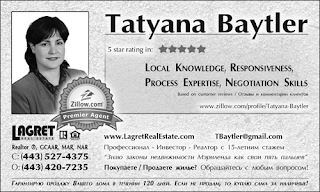HOUSING FINANCE AND POLICY UPDATES
FREE
Independent
Foreclosure
Review
This policy is for borrowers who believe they suffered financial injury as
a result of errors, misrepresentations, or other deficiencies in foreclosure
proceedings. DEADLINE: Complaint forms must be submitted online or
postmarked by July 31, 2012
Specified mortgage servicers were required to
send mailings to potentially eligible borrowers
and former homeowners on how to request a
review of their case with the mandatory form.
But lenders may not be able to reach borrowers
who lost their homes to inform them that they
may be eligible.
Know anyone who has
suffered financial harm due to errors or other
problems in the foreclosure process? He or
she may be eligible for FREE Independent
Foreclosure Review. BEWARE of anyone who
offers to complete the Request for Review Form
for a service fee.
Eligibility: The mortgage must have been in
active foreclosure process between January 1,
2009, and December 31, 2010; the property
securing the loan must have been the primary
residence; and the mortgage must have been
serviced by one of the identified mortgage
servicers.
For more information and to see a list of the
mortgage servicers, go to:
https://independentforeclosurereview.com
or call 1-888-952-9105 M-F, 8 a.m.–10 p.m. ET,
or Sat. 8 a.m.–5 p.m. ET.
National
Foreclosure
Settlement
The agreement will be executed over the next 3 years. In the next 3 to 6 months, a
settlement administrator, Maryland Attorney General and mortgage servicers will work
to identify homeowners eligible for immediate cash payments, principal reductions and
refinancing. Banks include: Ally Financial/GMAC, Bank of America (plus Countrywide),
CitiBank, JP Morgan Chase (plus Washington Mutual) and Wells Fargo. Those eligible
will receive letters. (Loans owned by Fannie Mae or Freddie Mac are NOT involved in
the settlement.)
The settlement provides financial assistance for:
• Individual borrowers who were victims
of unfair servicing practices and were
foreclosed upon between January 1, 2008
and December 31, 2011.
• Homeowners needing loan modifications
now, including first and second lien principal
reduction. Servicers must work off an
estimated $808 million in principal reduction
and other forms of loan modification relief for
Maryland homeowners.
• Borrowers who are current
in their payments, but underwater.
Eligible borrowers may
refinance at today’s historically
low interest rates. Servicers must
provide an estimated $64 million
in financing relief for Maryland
homeowners.
• Borrowers who lost their
homes to foreclosure without
losing the right to sue banks.
An estimated $24 million will be
distributed to these Maryland
borrowers.
• Housing counseling and other
state-level foreclosure prevention
and housing programs.
For more information on the
Mortgage Servicing Settlement,
go to: www.NationalForeclosureSettlement.com
For loan modifications and refinance
options, borrowers may be contacted
directly by one of the five participating
mortgage servicers. Borrowers
may contact the banks directly, if
additional information or verification
is needed.
BEWARE! Scammers are already
at work trying to capitalize on the
national mortgage settlement to
access victim’s personal financial
information—or worse, charge fees
for this FREE program
Maryland
Attorney General’s
Office Call Center:
410-576-6300 or
1-888-743-0023
Maryland HOPE Hotline:
1-877-462-7555
Capital Area Foreclosure
Network (CAFN)
(Statewide Referral
to Spanish/Espanol
Language Assistance.)
1-888-794-8830
(9:00 am to 5:00 pm, M- F)
Ally//GMAC:
1-800-766-4622
Bank of America
(and Countrywide):
1-877-488-7814
Citi:
1-866-272-4749
JPMorgan Chase
(and Washington
Mutual):
1-866-372-6901
Wells Fargo
(And Wachovia) :
1-800-288-3212
News on Home
Affordable
Foreclosure
Alternatives
(HAFA)
The Federal Housing Finance Agency
(FHFA) has announced a new directive
that requires servicers of Fannie and
Freddie loans to roll out in stages, starting
in June 2012:
• Review and respond to borrower requests
for short sales within 30 days after receipt of
a short sale offer and a complete borrower
request.
• If the review is still under way after 30 days,
give the borrower weekly status updates.
• Advise the borrower of the final decision
within 60 days after receipt of a short sale
offer and a complete borrower request.
The new timelines apply both to HAFA
loans and to other short sales approved by
Fannie Mae and Freddie Mac. Additional
enhancements are planned by the end of 2012
addressing borrower eligibility, simplifying
documentation, valuing property, payments
to subordinate lien holders, and mortgage insurance.
FHA
Premiums for
Refinance
In April, FHA increased upfront and
annual premiums for new loans. But
many real estate professionals missed
the second part of the announcement:
PRICE CUTS for FHA Streamline
Refinance Option for loans originated
on or before 5/31/2009, effective
6/11/2012
Upfront premium, 0.01%; monthly premium
0.55%. Estimated savings of $3,000 per year
for the average loan.
Borrower must be current on payments,
underwater mortgages are okay, “compare
ratio” is not required by lenders.
Go to: http://portal.hud.gov/hudportal/
HUD?src=/program_offices/housing/sfh/
buying/streamli (or contact a HUD certified
housing counselor or any HUD/FHA approved lender)





